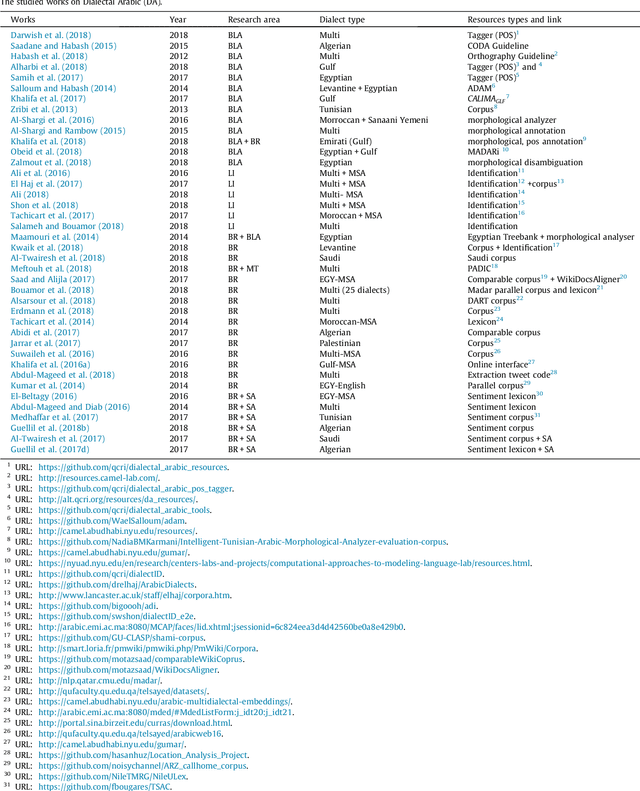Damien Nouvel
ERTIM
ERTIM@MC2: Diversified Argumentative Tweets Retrieval
Apr 17, 2023



Abstract:In this paper, we present our participation to CLEF MC2 2018 edition for the task 2 Mining opinion argumentation. It consists in detecting the most argumentative and diverse Tweets about some festivals in English and French from a massive multilingual collection. We measure argumentativity of a Tweet computing the amount of argumentation compounds it contains. We consider argumentation compounds as a combination between opinion expression and its support with facts and a particular structuration. Regarding diversity, we consider the amount of festival aspects covered by Tweets. An initial step filters the original dataset to fit the language and topic requirements of the task. Then, we compute and integrate linguistic descriptors to detect claims and their respective justifications in Tweets. The final step extracts the most diverse arguments by clustering Tweets according to their textual content and selecting the most argumentative ones from each cluster. We conclude the paper describing the different ways we combined the descriptors among the different runs we submitted and discussing their results.
Arabic natural language processing: An overview
Mar 07, 2019



Abstract:Arabic is recognised as the 4th most used language of the Internet. Arabic has three main varieties: (1) classical Arabic (CA), (2) Modern Standard Arabic (MSA), (3) Arabic Dialect (AD). MSA and AD could be written either in Arabic or in Roman script (Arabizi), which corresponds to Arabic written with Latin letters, numerals and punctuation. Due to the complexity of this language and the number of corresponding challenges for NLP, many surveys have been conducted, in order to synthesise the work done on Arabic. However these surveys principally focus on two varieties of Arabic (MSA and AD, written in Arabic letters only), they are slightly old (no such survey since 2015) and therefore do not cover recent resources and tools. To bridge the gap, we propose a survey focusing on 90 recent research papers (74% of which were published after 2015). Our study presents and classifies the work done on the three varieties of Arabic, by concentrating on both Arabic and Arabizi, and associates each work to its publicly available resources whenever available.
 Add to Chrome
Add to Chrome Add to Firefox
Add to Firefox Add to Edge
Add to Edge